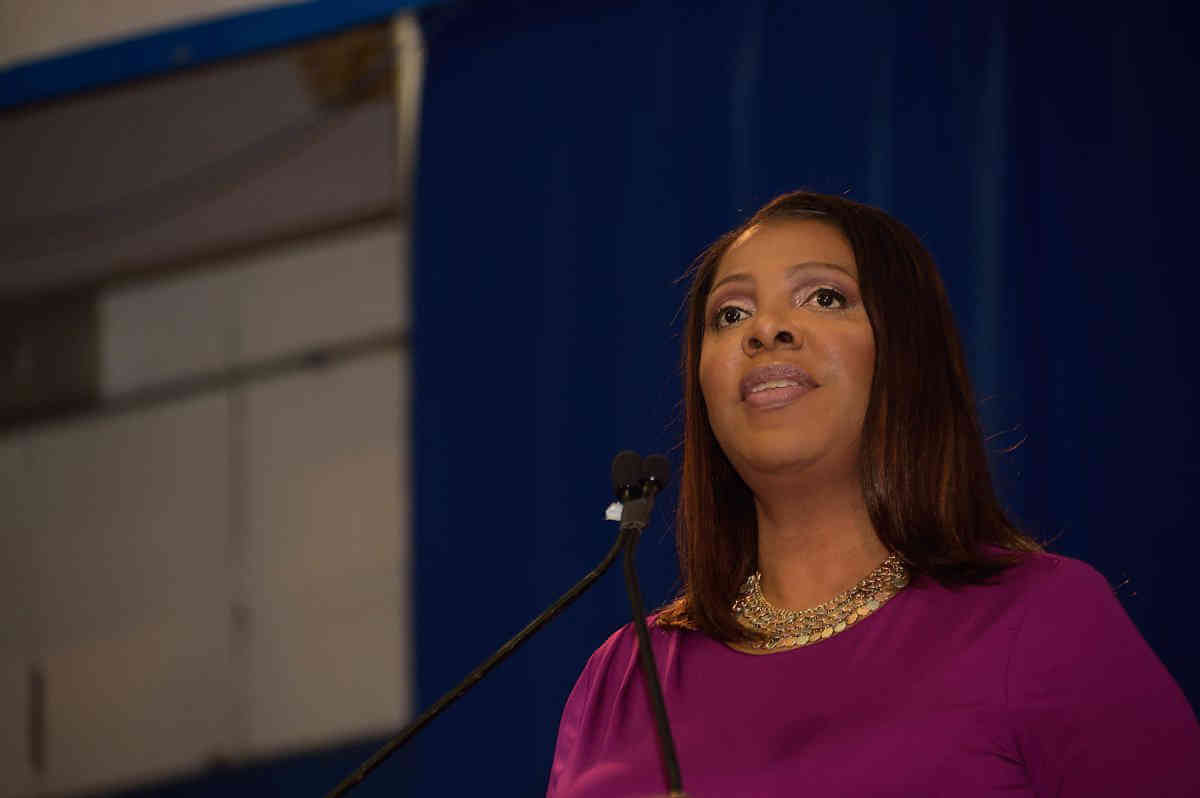Judge Andrew L. Carter, Jr., of the US District Court for the Southern District of New York has granted a preliminary injunction on February 14 against enforcement of New York’s “Hateful Conduct Law,” which was enacted last year in response to a mass shooting incident in a Buffalo grocery store on May 14, 2022. The shooter recorded his actions and put a recording online that went viral. He also posted his racist ideology on social media.
This incident prompted Governor Kathy Hochul to direct Attorney General Letitia James to investigate events surrounding the shooting, and particularly to focus on “the specific online platforms that were used to broadcast and amplify the acts and intentions of the mass shooting,” and to “investigate various online platforms for civil or criminal liability for their role in promoting, facilitating, or providing a platform to plan or promote violence.”
The attorney general issued a report in October 2022 accompanied by a press release calling for accountability for “online platforms … for allowing hateful and dangerous content to spread on their platforms.” The legislature responded with the “Hateful Conduct Law.” This defines “hateful conduct” as “the use of a social media network to vilify, humiliate, or incite violence against a group or a class of persons on the basis of race, color, religion, ethnicity, national origin, disability, sex, sexual exploitation, gender identity or gender expression.” It went into effect in December.
The law requires that social media networks establish and publish on their websites a policy describing how they will deal with complaints about such “hateful conduct” and to set up a mechanism on their websites for users to file complaints about instances of “hateful conduct.” The law does not require social media networks to take down such postings, but they are required to respond to the complainants about what action they have taken in response to their complaints.
The three plaintiffs in this case operate social networks that allow users to post content, and all three emphasize that they are “pro-free speech.” They challenged the law as violating their First Amendment free speech rights and the free speech rights of their users. They invoked the “compelled speech” doctrine, which prohibits the government from compelling non-governmental entities or individuals to speak unless the government policy is narrowly tailored to achieve a compelling governmental interest.
In order to get a preliminary injunction, the plaintiffs had to show that they were likely to prevail on their constitutional challenge. Judge Carter found that they had met this requirement.
The judge focused on Supreme Court free speech cases, which make clear that what one might label as “hate speech” enjoys First Amendment protection. Judge Carter found that the statute’s definition of “hateful conduct” was really another way of labelling hate speech, and that it was not clear what speech would fall within the terms “vilify” and “humiliate.” The court noted that each of the plaintiff social media operators have posted policies about what they would remove from their websites, but none of those policies covered exactly the things spelled out in the statute, so the plaintiffs, all arguably covered by the statute’s definition of a “social media network,” would be compelled to speak on this subject in order to comply with the statute and not subject themselves to potential liability.
Furthermore, requiring the networks to post such policies would likely result in deterring some users from posting statements or materials that otherwise enjoy First Amendment free speech protection, compounding the First Amendment problems raised by the statute.
As Judge Carter explained, “the law is clearly aimed at regulating speech,” even though it does not require the networks to remove anything that is posted on their websites. “Social media websites are publishers and curators of speech, and their users are engaged in speech by writing, posting, and creating content. Although the law ostensibly is aimed at social media networks, it fundamentally implicates the speech of the networks’ users by mandating a policy and mechanism by which users can complain about other users’ protected speech.”
Because it is a “content-based” regulation, furthermore, it is subjected to the highest level of judicial review, strict scrutiny. And, because it does not compel the networks to remove users’ postings that fall within the definition of “hateful conduct,” it is not clear that it is necessary or effective to achieve the government’s articulated interest in deterring the conduct involved.
However, the court rejected the plaintiffs’ argument that Section 230 of the Communications Decency Act preempts the state from enforcing this law. Section 230 shields internet service providers from liability for what their users post, or for their decisions about what to allow to be posted or taken down. The court found that Section 230 is essentially irrelevant to “Hateful Conduct Law.” The Supreme Court recently heard arguments in cases challenging the scope and application of Section 230, so later this year there may be some new clarification as to its application and constitutionality, but as of now, the court found, it did not preempt New York from enacting the “Hateful Conduct Law.”
The preliminary injunction prohibits the enforcement of the “Hateful Conduct Law” while the case is pending, and would be turned into a permanent injunction if the court reaches similar conclusions after discovery and the filing of motions for summary judgment.
Judge Carter was appointed by President Barack Obama in 2011.



































